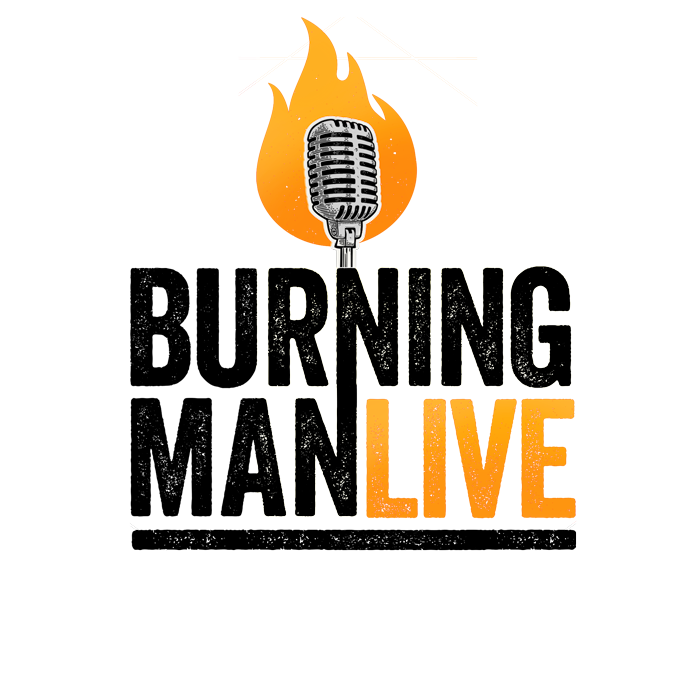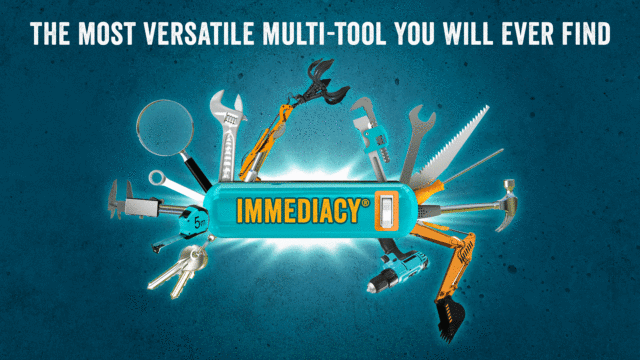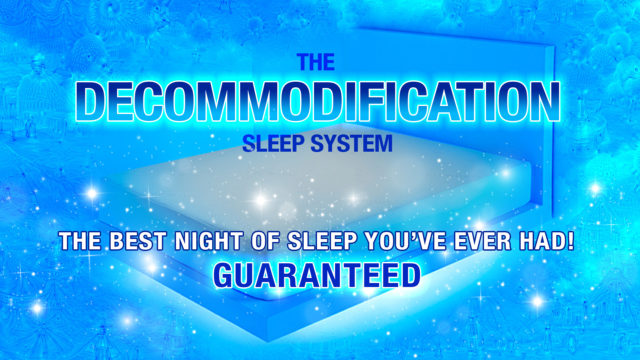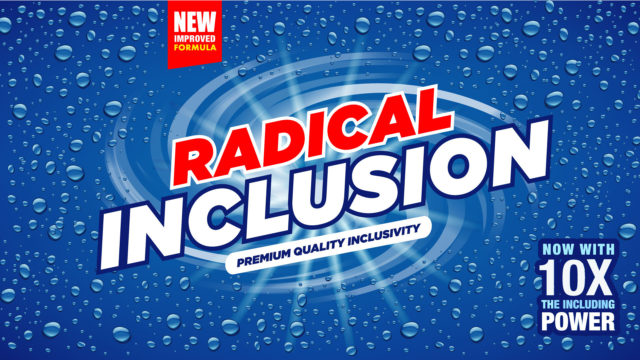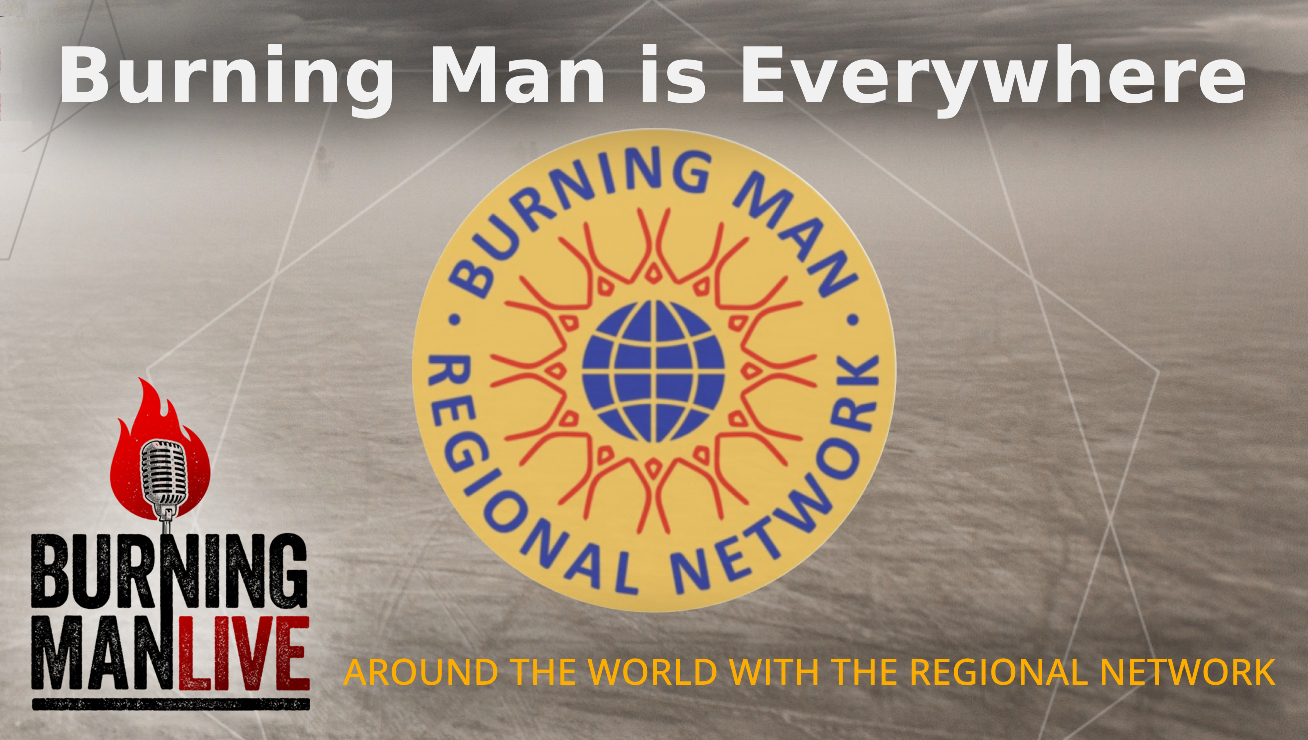
Burning Man is Everywhere
Everywhere?
Regional events actively align with Burning Man’s 10 Principles. 85 official events happen in 30 countries, with collectively more participants and more art grants than the original Nevada event.
After 25 years, the combined regional presence is huge, diverse, and evolving, and it all started in one place: Black Rock City. Whether you’re Burning in New York or New Zealand, all backroads lead back to BRC.
We called a bunch of the Regional leaders to see how things are going out in their other homes away from home. We heard from Argentina, China, Denmark, Germany, Hungary, Italy, New Zealand, and even the far-flung realms of Texas and Kentucky.
Play this mixtape of people sharing stories from everywhere in the world.
And here’s a related episode from 2022:
Transcript
STUART:
The Burning Man Regional Network has been a thing since way back in the late 1990s. But still, a lot of people today don’t know it’s there, much less that it’s grown to the point that it’s now bigger than the original Nevada event by just about every metric. We’re talking Burners in 30 countries, 85 official events. Event attendance is bigger overall than Black Rock City; we’re looking at something like 95,000 people around the world. More art grants are given out and so forth. It is huge, it is incredibly diverse, and it all started in one place, back in Black Rock City.
Now, people like to joke about the original Burning Man event as being the Gerlach Regional. Okay, but I call it the capital city of our notional nation, or our international confederation or, I dunno, insert political metaphor here. Whether you’re Burning in New York or New Zealand, all roads lead back to BRC.
And the people who organize those regional events and programs around the world, let’s say they still have dual citizenship. When we’re out on the playa this year we called a bunch of them just to check in and see how things are going out in their other homes away from home, away from home.
We heard from Argentina, China, Denmark, Germany, Hungary, Italy, New Zealand, and even the far-flung realms of Texas and Kentucky. I’ll let them speak in their own words. Let’s just settle back and hear what these people have to say about Burning Man.
IGNACIO:
I’m Ignacio Roizman, I’m one of the three Burning Man Regional Contacts in Argentina.
Being part of the Burning Man Regional Network has enriched my life by imploring people to embrace the transformative culture of Burning Man, helping them to connect with their creative side, playing again as a child. I think this is the best way to realize their true potentials. And most of the time, it drives significant changes in their lives.
And please don’t forget to play. Play is our very way of learning.
ELAINE:
I’m Elaine, and I’m your Regional Contact in China, Shanghai. Most importantly, it’s about the mindset. You don’t really need that many things to help you to enjoy these experiences. Only need your open heart. That’s it. So don’t be too nervous or don’t be too over-preparing about everything. What you really need for the Black Rock City is yourself. Just be there. Of course, basic survival gears should be equipped. But that’s… the most important is the open hearts. Just be there. Be yourself.
The thing I love Burning Man culture is that it is unique and often deeply impactful for those who participate. The event, it fosters a strong sense of community especially, where people work together to build the camps, create art, and support one and another. This collaborative spirit is central to the experience, basically, and also it emphasizes the collaboration, mutual support and, you know, shared experiences. These are all the key points to the community bonds, I think. It really strengthens the community bonds. And these communal aspects of Burning Man serve as a, let’s say, a reminder, I guess, of the importance of how, you know, human connection really works.
So that’s why I always say, like when I go to Burning Man, the most important thing is the people, where I can connect with, I learn with, I hear their stories. We exchange experiences. These are the things really make it memorable for myself.
I think before when we heard about Burning Man, which is considered the big event, we go there, we enjoy; it’s part of your personal journey. But when I discover about the Regional, it’s like you discover you have so many friends all over the world, and wherever you go, you don’t feel alone. And that’s how the Regional Network really helps me to build this confidence globally. Wherever I go, I know this group of people, we share the common value, we share the similar interests. So it felt like home. It’s not a stranger to me. It’s not a strange country to me anymore.
So that’s all thanks to Regional Networks, because we met so many different people and so many different Burners from different Regionals, and we learn from each other and we share stories with each other. And all the stories – it’s very interesting how they set up the event, how they built their communities, and we know we’re not alone.
LUMOS:
Hi, I’m Lumos, your Burning Man contact down under in New Zealand. Well, many people think that Burning Man is that crazy thing in the desert, but it’s grown to so much more. I love the way we use art as a tool to initially connect with the participants, and then we draw them into our Burner world where we care about each other and our community. And then in a tag-and-release type program, we encourage these excited humans that, when they get home, they continue the caring and the sense of community in the world they live in.
LARS:
I’m Lars, Pippi Pappa. I’m your Burning Man Regional Contact in Denmark. Bring your kids to Burning Man. Burning Man is the best playground and the best family to bring up your kids, to make them create a better world. I bring Burner culture into my daily life by bringing my kids and my partner to the playa, and by bringing them back into daily life.
I know that sometimes it’s a challenge for Burners that I meet in Black Rock City, to bring their kids, and their partners and, perhaps, their parents too. Or to put it another way, to take the challenge and all the love in having a conversation with your kids, your partners, your family about going to Burning Man, what happens there. Not necessarily bring them if that’s not possible, but to emphasize that it is work worth having a conversation about in your life.
It has been super nice to be able to bring my kids. As a family, we have been there, the five of us, three times, all of us together. But I have also been there with my three daughters when they were young teenagers, and that has been a phenomenal way to do something together.
It has been fantastic to get the positive responses in Black Rock City, especially from grown up women, approaching us, telling, “wow, that is fantastic,” but also challenging us. And that has been a springboard for really important conversations about how people regard Burning Man, how they understand it, and how they understand kids and teenagers out there.
MINT:
I’m Mint, your Burning Man Regional contact in Hamburg, Germany.
Hello!
Burners can plug into the German community by joining us on one of our many amazing community gatherings.
If you want to keep the Burning Man experience, one way would be to reach out to your local community. And if there’s none yet, just create one. If you build it, they will come. The Burning Man Regional Network has your back.
People think Burning Man is just this crazy thing in the desert, but it’s so much more. What I love about it is the amount of creative energy and inspiration that fuels me during the rest of the year. I now dream bigger. I’m not afraid to start things, or create different kinds of art, and I bring that attitude home with me.
Never forget, when you burn with love, you’ll always be ready to warm others. Wink, wink.
KRISZI:
I am Kriszi Radnoti, your Burning Man Regional contact in Hungary. You can connect with me and other Hungarian Burners. Let’s create something together.
I hope people bring back the spirit of collaboration and co-creation from their Burning Man experience into their daily lives. Each time I am in a great Burner community, I return feeling more hope for humanity than before. This is because I experience that humans can work together in this different, better way, making each other feel safe and connected, and on this foundation, create magic together.
Here in Hungary, we do not so much have the opportunity or the funds to create huge art, but for me, the magic is really in the way people work together. So I like the art, but, you know, there’s many great artists around. What’s different is creating somehow a space in which people can unfold their creativity. A lot of people who in other environments are maybe passive or somehow not effective or not efficient, when they’re in a great Burner community, all of a sudden people can bring somehow into the real world what’s in their hearts. And I don’t see that’s happening at other festivals or in other communities, or at least in a different way.
From Hungary usually the people who make it to Black Rock City are kind of the people who have enough money. So it’s like not the average people. So I’m often a bit disappointed because they tend to go have a very cool party and then come home and do not have too much interest in connecting or doing something together. Even if they want to do a Burner event, they tend to think of the huge art or something like this.
And then there’s other people who are inspired by the community and co-creating and things like this, but they never make it to, usually not even the European Burns. Maybe they make it to a Schönburn in Austria, but even the Borderlands is like a rare, rare thing that people make it there.
So yes, I’m always hoping that people go to Black Rock City and hopefully one day a few people will come back and say, “You know, let’s create something together” because I’m, like, looking for other people to do it together.
There’s so many ideas we can gather from Black Rock City of how to make an everyday experience something fun and connecting. This is something people can bring into everyday life, and any sort of mini event, you know: just how to serve coffee in a fun way, or pancakes or whatever. This is something that can realistically be brought home. And I always love to see, like these little sparks.
Every time I went to, like, an ELS, or just a phone call or just a meeting, I always come back more energized. Everyday reality can be like a little bit different vibe. So for me, it’s always energizing and bringing me back into my creating mood. Each time I manage to join like a Regional Network session, even though I’m tired afterwards, I’m full with ideas and like energy to make things happen. So, energizing. I think that’s the best way to put it. The connections give energy.
MISS PURPLE:
My name is Miss Purple, your Burning Man Regional Contact in Italy. Stay tuned on our channels. We have a lot of interesting stuff coming up this winter.
One of the ways people can bring Burning Man Culture home is by embracing community and radical self-expression in their everyday lives. At Burning Man we see a unique blend of creativity, collaboration, and open-mindedness which can inspire us to connect more deeply with those around us. We can create environments that encourage artistic expression and collective problem solving.
Adopting a mindset of self-reliance and environmental responsibility, which are key aspects of the Burning Man ethos, can lead to more sustainable living practices.
Bringing the culture of Burning Man into our daily lives means nurturing a sense of wonder, generosity, and connection, making our community more vibrant and resilient.
Being a part of the Burning Man Regional Network has enriched my life by connecting me with amazing people and helping me build strong friendships. It has given me many chances to express my creativity and try new things. I’ve also learned a lot about teamwork and community, which has made me feel more connected and more supported. Participating in events and projects has brought joy and meaning to my life, making every day more exciting and fulfilling.
Um, what I love about Burning Man culture, one of the things I love most is, I like to think about Burning Man culture as a bucket where you can put something about you and pick up something about someone else, and exchange this moment of skills, art, passion, love, experience. You keep giving and you keep taking from it.
This is like what happened to me after my first Burning Man. I went back home and I didn’t know what to do. And then I started to, like, searching link people, writing, like, keep your crew and friends informed about Burning Man and try to attend a small gathering, even just for coffee, and keep sharing your experience with people from outside and from inside Burning Man, because that keeps you alive during the year, and it keeps giving you new ideas, new input that you can put in your backpack for next year to improve your experience, and the experience of the people around you.
BREW BEAR:
I am Brew Bear, and I am one of your two Regional Contacts in Kentucky. Being part of the Burning Man Regional Network has enriched my life in more ways than I can count. My biggest takeaway is that being part of the Regional Network has really helped me remove the barrier between default world and Burning Man.
You know, I like to think of myself as an authentic person, and I always felt that my authentic self was who I am at the Burn. But through attending Regional events, I’m able to remove that barrier and be the same person as I am in the Burn as I am in the real world, without feeling like any fear of repercussions.
Keep in mind, Burning Man is not just an event, it’s a culture. And when you start to live in a culture, it becomes who you are. So the 10 Principles for Burning Man, you can really apply those in the everyday culture. Um, if it’s as simple as picking up some trash on the road, or if you see somebody walking by, you know, just give them a smile. I mean, a smile is a gift, right?
When I think of Burners, I think of really good people. And those 10 Principles, yes, they are what you see at an event, but those are not bad ways to live day to day life.
I feel like a kid when I’m at Burning Man, when I’m playing in the dust. I feel like a kid when I’m at a Regional Event. So take that creative, playful spirit that you have at Burning Man, take it everywhere. Take it into your job. Take it into your family. Take it into your friendships. Burning Man has made me a better person, and we’re really fortunate to have this ability to be a part of this culture.
Even though it’s inclusive, not everybody knows about Burning Man. You know, when I first got into Burning, I didn’t know there was a Burning Man in Kentucky. But we have a really good group of Burners here. We have our original Burn called Reclamation, also known as the Hillbilly Burn. In true fashion, it’s a smaller Regional Burn. It’s anywhere, 70 to 125 people per year ish depending on dates and weather. We’re a really passionate group. You have people that do both, like myself, where you’ll see me at the Regional Burns and you’ll see us making the trip out to Black Rock. We’re really creative. We’re a really intelligent group. Camps like Kentucky Fried Camp, to me a staple of Burning Man, and of course they’re from Kentucky. And even some of my camp mates that I met recently, I didn’t know they were Kentuckians.
So, you know, when I first thought of Kentucky, I didn’t think of, like a strong Burning Man culture, but all throughout the state and especially our surrounding states. A lot of our culture filters over to Tennessee, Ohio, Indiana. So not only when I think about Kentucky Burning Man Culture, I think about all the states around us, I kind of think of us as one big little Midwest family.
SHELLEY:
I’m Shelley Watson. I’m a Burning Man Regional contact for New Zealand.
I’ve been involved with KiwiBurn New Zealand Regional Event for many years now, and I’ve sort of dove into lots of different areas, mainly communications, and through volunteering, my skill set just in general and life, has grown immensely. I’ve learned so many things just because I had to learn how to do something because do-ocracy is a big thing, and, if you want something done, you learn that you just make it happen yourself. So I have all these different skills that I’ve picked up just from having to get things done. That’s been incredible.
Burning Man culture is so creative. And really my favorite thing about it is the art that gets made. And that’s in any form. It doesn’t have to be huge art. Someone’s art could be something very small and personal that they make, or something huge that they share. But what I love is how it’s collaborative and people get involved and help each other. And you know that there is no expectation of anything in return for any time or gift given. I do particularly love that. It’s a very supportive community, and you can learn a lot.
In New Zealand, some regions are more active than others in terms of Burner meetups, and some regions are larger, but the size doesn’t usually matter for the activity. So there are some sort of Burner hubs around New Zealand that are really well supported, and other places are really spread out. So it’s a matter of, maybe just find your local Burner group and hang out. Or it might be that it’s a fire performance type of group, or something else, but you’ll meet Burners of all walks of life. But, yeah, try and go along to your local meetups. Some of them are like, monthly, like, quite regular, and get to know your local Burners.
If you’re a Burner anywhere in the world, the best thing you can do is volunteer for your local Burner group and help make the magic happen.
CLOVIS:
I am Clovis Buford from Austin, Texas, the very first Regional, Flipside, and we are one of the founding members of the Regional Network.
The thing I love about Burning Man is the sense of community I found. When people talk about ‘going home’, that’s what it feels like. The event itself is like the biggest family reunion that I’ve ever been to. I get to see people from all over the world that I have not got to see in a while, a year. I get to hang with people I’ve never met before that are just full of ideas and innovation. You make really good, long lasting friendships out of that.
When you get home, start working on expanding that network and deepening the relationships you made out there, because it is a good bonding experience. Check into your Regional Network. Like for us, we have church nights every Wednesday where we can all socialize and work on art and keep up with community events. We gotta keep this whole network thing going, and the way you do that is you network, hang with each other, take care of each other.
I have helped little small Regionals try to find a path forward, you know, and tell them what works for Flipside. We have a 20 year old organization, so we are more firmly entrenched. We have processes that work. So helping people set up their own framework that works for their event is pretty cool.
The Regional Network and Burning Man has made my life better in so many random connections to people all over the world. I have met people from Lithuania and helped them with structural things. And just meeting people from everywhere, hanging out with the French, hanging out with Misa from the Czech Republic, things like that. It’s grand.
If you want to broaden your horizons and your outlook, meet with people from different places. When you’re insular, you block yourself off from new experiences and new people. And the Regional Network is great at expanding your horizons, is what I’d tell ya.
And that’s about it. Be kind to each other. Thank you.
FRANCESCA:
My name is Francesca, and I was one of the persons that was there when we started Dragon Burn first, and I take care of fire, and logistics, like infrastructure, storage, and yeah what would be called DPW of Dragon Burn.
LALO:
Hello my name is Lalo, I’m from Spain and I live in Shanghai, China. We are part of the planning, and I have only missed one Dragon Burn since then. I’ve been to all of them as an artist, participating, and also like part of a planning group.
FRANCESCA:
In China the Burn is great. Well, I don’t know if I would call it a project, but I think Dragon Burn, the idea of the gathering and the idea of having Chinese people involved in creating theme camps has inspired people to make gathering to proliferate. There is another music festival that’s been created by people that met through a theme camp, which is a very interesting thing because it brings underground and community festival to a place where there is a lot of commercial event. And so there is a lot of things going on about music and this create also support for local places. I have in mind a couple of bars or small clubs that’s been running for like 20 years and that’ll be fueled by the activity of these people that work over the year.
LALO:
I would say that we’ve been the spark for certain things, you know, like the community. Like we were the spark for certain projects, synergies, and community to grow. So therefore, I think we are seeing a little bit of the seeds that we planted from the beginning of the project.
FRANCESCA:
If you’re thinking about something that is more social oriented, let’s say, one big contribution was on the Leave No Trace. That’s like a huge cultural difference in the way that we understand trash management, consumption, and also natural resources in a way. And the fact that we use the Burn to experiment on some radical way of thinking about the environment I think has inspired people of changing their own habit. Maybe in an indirect way I think we have supported kind of an environmental movement of zero waste. I would call it more zero waste. That’s something that is going on a lot in Shanghai in the past like five or six years. And a lot of people that are very active in that community has been somehow part of the Burn, or they’ve crossed the Burn in different ways.
There is a lot of effort on independent young art activation. Shanghai is a city where there is lot of urban regeneration going on, like old buildings transformed into commercial spaces, and there is a sort of like intention to intercept these spaces and try to activate them from the community. So I know about a lot of young artists that has been crossing the Burn that are making pop-up galleries, or they’re organizing like an artistic event, and they try to do projects together and, yeah there is something related to how the space is activated and liberated in a city, to try to show that something that is not necessarily commercial can happen. It’s kind of like connecting the energy that can create something. And maybe someone were able to rent maybe a space downtown and then this become like a activator of like circulating different energy and organizing events and this kind of thing.
I wouldn’t say it’s an easy process. I wouldn’t say it’s necessarily always successful. But we can see that it’s happening. And so, it must be starting from somewhere, no?
LALO:
People are talking about it. What people receive from Burning Man might be like really diverse, independent from where, from which kind of media it’s coming from. But on the other side, people are also listening to stories directly, not like through the media, but telling stories. People are coming from China, people are coming from all over the world. If people are making this effort to come from many places to here, that means that what is happening here is worth the effort, the energy, the time, and the money.
FRANCESCA:
I think that the importance of Burning Man is also like giving the possibility like in a very continuous and fluid way to try different things. To experience something that you couldn’t imagine, because that makes some click on the way that you handle your daily thing. Once you get in the feeling that you can do things differently and try and experiment, think that slowly would eventually change or impact your daily life. And I don’t know if this can be measured. I don’t know if impact is something that could be measured. But I think that impact as a general idea is that, if even a fraction of the people that come here will instead go out of Burning Man, which is like bring Burning Man where they are, or something about it, that’s a beautiful thing. That’s a big thing. Yeah, that’s different.
Spice & Vice is a Bedouin hospitality and we call it the desert-to-desert tent. And it has an interesting story because it’s been founded by two American friends that were used to live in Shanghai and are also two of the founders of Dragon Burn. Before coming to Shanghai, they were living in the Middle East, and so there is this connection between the desert of Middle East and the desert of East Asia. So it’s been a camp where we kind of always cross in the middle and keep the contact.
And it’s interesting because, well, now there is more more people that come from Taiwanese community, mainland China community, Hong Kong community, and also like Chinese people that’s been living, maybe even born, abroad. So it’s kind of like a point of reference for all of this.
And similar to our Burn, I think we have 15 nationalities in a camp of like 50 people, which is like a very good ratio. And in China, we have 56 nationalities in a Burn of 700, or 800 people, where half of the people are Chinese and the other half is 50 nationalities. So one person out of 10 that you meet is actually from a country that you may not even know what is on the planet. This like desert-to-desert kind of thing, it feels like the place that we like to contribute. And, ah, yeah.
LALO:
What I do in Dragon Burn is pretty diverse. One of the things that I’ve done is mapping the venue, to create a map, and to do the placement, arts, and camps. We’ve been able to provide electricity so we also have to map the electricity. Francesca is our electricity engineer, and we’ve been mapping, also calculating the length of the wires. We’ve also like made the video of the event, with all the art, with the drone and so on. And that was also a good way for people to at least know about us, and see it from the inside.
And also, as we said, the census. Once we did our first organized census, we realized that we might be the most diverse Burn in all the Burn community. We are like 8, 900, and we count up to 50+, 60+ nationalities. So we’re a pretty diverse Burn.
We are also, like, we’ve been told to be the most silent Burn because we do provide electricity, there is not that MMMM of those generators that we “love” when we sleep!
FRANCESCA:
The first time that we came out on playa, that was the third year of Dragon Burn. It was very natural to go to camp with our friend. And then since then, I mean personally I’ve been here since my first Burning Man. For Lalo its the first time, finally we convinced him. First time in Spice & Vice, and so it’s kind of, it felt natural to just continue with the experience and cherish the tradition of the camp.
Hey! Nice to see you! Welcome! Go, go, go drink some tea. We come over soon.
LALO:
Bye bye.
STUART:
Burning Man LIVE is a production of the Philosophical Center of the nonprofit Burning Man Project.
Thanks to all the amazing Regional peoples you just gave a listen to: Ignacio, Elaine, Lars, Mint, Chrissy, Miss Purple, Brew Bear, Lumos, Shelley, Francesca, Lalo, and the inimitable Clovis Buford.
Thanks to all the other monkeys keeping me company here in this giant room full of imaginary typewriters: Vav Michael Vav, Tyler Berger, kbot, Lotus Position, DJ Toil, Action Girl — love you all. Thanks to Iris and Raspa and especially to Lara on the Regionals team of Burning Man Project for helping to pull this one together.
And thanks to you, dear listener, for tuning in, for telling a friend, for giving us a nice review (Thanks for the stars!), and, and, for your generous tax-free donation to Burning Man Project, which, by the way, you can make any time at donate.burningman.org.
I’m Stuart Mangrum.
Thanks, Larry.
more

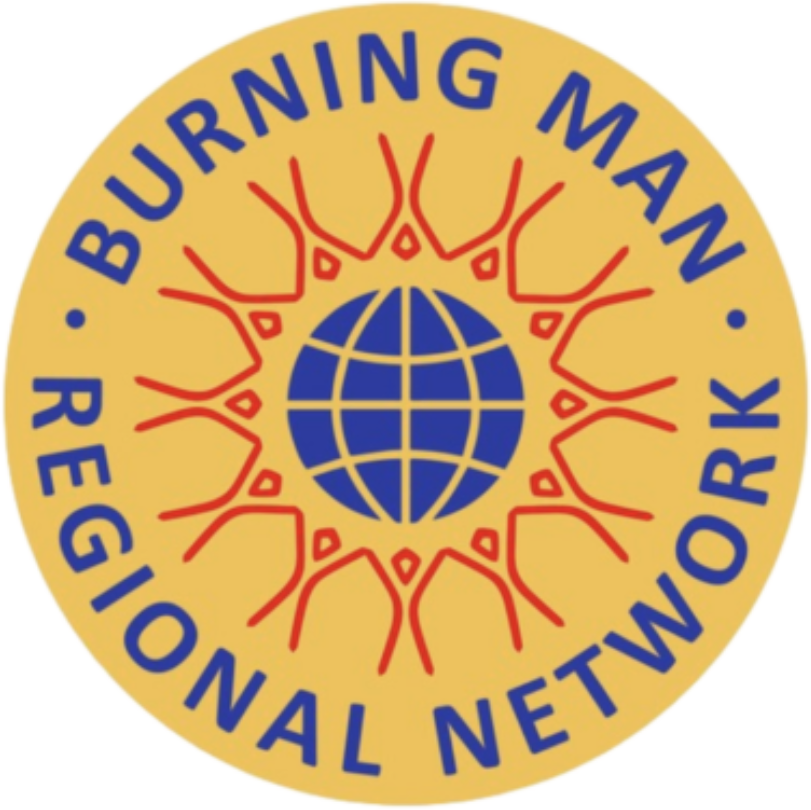 Brew Bear, Clovis, Elaine, Francesca, Ignacio, Kriszi, Lalo, Lars, Lumos, Mint, Miss Purple, Shelley, Stuart
Brew Bear, Clovis, Elaine, Francesca, Ignacio, Kriszi, Lalo, Lars, Lumos, Mint, Miss Purple, Shelley, Stuart
